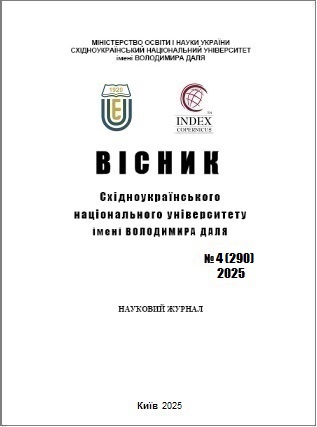Development of a nutrition management platform with artificial intelligence integration
DOI:
https://doi.org/10.33216/1998-7927-2025-290-4-21-26Keywords:
nutrition, artificial intelligence, recommender system, data security, personalization, health, behaviorAbstract
In today's conditions of growing interest in a healthy lifestyle, the implementation of digital solutions for effective nutrition management is becoming relevant. A significant part of the population faces difficulties in forming a balanced diet, adhering to a meal regimen and controlling calorie intake. These difficulties are due to both information overload and the lack of personalized tools that would take into account individual needs, the level of physical activity, the user's goals and his eating habits. At the same time, the software market in this area is represented mainly by universal platforms focused on standardized approaches without deep personalization and adaptation to the local user. The article considers the concept of creating a web platform for monitoring and correcting the diet with the integration of artificial intelligence elements. The main goal is to develop a flexible tool for daily monitoring of eating behavior, forming recommendations based on the user's previous experience, analysis of his physiological parameters and preferences. The article analyzes the main problems of modern nutrition, highlights the shortcomings of existing digital solutions, in particular, the lack of adaptation, the complexity of the interface, the limited functionality of free versions, as well as the risks associated with the transfer of personal data to third parties. Attention is paid to the theoretical foundations of building recommender systems, their classification and principles of operation in the context of eating behavior. Special emphasis is placed on the importance of secure processing of personal data in accordance with the international standard ISO/IEC 27001. The proposed concept aims to form a scientific basis for creating an adaptive, safe and convenient nutrition system that takes into account the needs and characteristics of each individual user. The implementation of such a system can have a significant impact on the formation of long-term healthy habits, the prevention of diseases related to nutrition, and become an effective tool in the field of public health. Its development requires an interdisciplinary approach that combines knowledge from dietetics, information technology, and behavioral sciences.
References
1. Григор’єва І.В. Роль харчування у збереженні здоров’я людини. Сучасна медицина. 2020. № 3. С. 45–51.
2. Гриневич М.І. Рекомендаційні системи у цифровій медицині: підходи та виклики. Штучний інтелект. 2021. № 2. С. 25–32.
3. Ковальчук С.С. Використання алгоритмів машинного навчання для побудови індивідуальних дієт. Інформаційні технології. 2022. № 1. С. 10–16.
4. ISO/IEC 27001:2022. Information security, cybersecurity and privacy protection – Information security management systems – Requirements. Official edition.
5. Кравченко О.В. Нейромережева рекомендаційна система для вибору товару на основі оглядів користувачів і продуктів. Вісник НТУУ «КПІ». Інформатика та обчислювальна техніка. 2022. № 4. С. 112–119.
6. Варламов М.Д. Рекомендаційна система з приготування страв для набору розпізнаних та класифікованих продуктів харчування: кваліфікаційна робота. Харків, 2021. 74 с.
7. Грищенко С.В. Медичні та соціальні аспекти раціонального харчування для підтримки здоров’я українських підлітків. Сучасна педіатрія. 2024. № 1. С. 38–44.
8. Савчук О.М. Цифрові технології у сфері охорони здоров’я: сучасний стан та перспективи. Медична інформатика. 2021. № 2. С. 17–22.
9. Демченко Л.В. Роль освітніх програм у формуванні здорових харчових звичок серед молоді. Громадське здоров’я. 2020. № 1. С. 55–60.
10. Кирилюк В.М. Аналіз можливостей використання фітнес-браслетів у медичних інформаційних системах. Комп’ютерні науки та кібернетика. 2023. № 3. С. 28–34.
11. Мельник І.С. Локалізація програмних продуктів у сфері охорони здоров’я: проблеми та рішення. Системи управління, навігації та зв’язку. 2022. № 1(65). С. 49–53.
12. Петрова Л.І. Соціальні аспекти використання ІТ у профілактиці неінфекційних захворювань. Соціальна медицина. 2021. № 2. С. 33–39.

